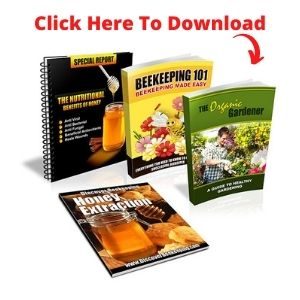What to Feed Bees in Summer
Bee Food for Winter
During the winter season, feeding bees is a bit different from other times of the year. Sugar syrup is not a good option, because bees can't cope with the high water content. Rather, they require solid food for winter, like a pattied winter diet. During the cold months, you can feed them with winter patties, which contain almost all sugar and a small amount of pollen substitute. Some of these products also include essential oils.
When you make a purchase through links on our site, we may earn an affiliate commission As an Amazon Associate I earn from qualifying purchases..
A great alternative to commercial honey is to make your own bee food for winter. If you have a large hive, you can feed the bees an empty super and a small amount of sugar. If you are unable to supply the bees with enough honey during the winter, you can use capped honey from a dead colony. In addition, you can provide the bees with supplemental dry sugar, such as candy board, fondant, or sugar bricks. Another option is to create a simple patties or cakes that can be offered to the bees during the winter.
A 2:1 sugar water syrup is an ideal option for fall feeding. The bees can use this syrup to store nectar. Raw sugar is too harsh for honey bees. Excess honey from stronger hives is a much better alternative. The best bee food for winter is a combination of honey and liquid syrup. These two foods are beneficial to both bees and beekeepers. A balanced diet of honey and sugar is the best bee food for winter.
If your hive has a strong colony, you can offer the bees an alternative to sugar. For fall feeding, a sugar water syrup of 2:1 ratio is best. This syrup is thicker and easier for honey bees to store. Alternatively, you can offer the bees beet sugar or refined white cane sugar. Avoid using raw sugar, as it will upset their digestive systems. Instead, offer them honey that is rich in essential oils.
Bee food for winter is different from that used during other seasons. The sugar syrup that you feed them in the summer may contain too much water for them to digest properly. During the winter, bees must be fed solid food. For this purpose, you can use a special winter pattied sugar for winter. The granulated sugar is completely sweetened and contains no other additives. If you want to feed your bees without any additional supplements, you can provide dry sugar or honey.
If you are feeding honey bees for winter, you should make sure to feed them enough. If you have a low-population colony, you may have to increase the sugar/water ratio. For the same reason, it is better to use internal feeders. These will be accessed continuously by the bees. And since honey is the main source of energy, they can survive without supplemental feeds. So, bees need to be fed every day.
It is crucial to feed your bees in the winter. When the temperature is low, you should crack your hive and buy bee food for the winter. Check if the cluster is covered with honey capped. If not, the bees should be fed with syrup. It is important to remember that it is not safe to provide sugar water to your bees. If you can't afford to do this, you can consider giving your bees a sugar patty instead.
When feeding in the winter, it is important to remember that the bees are not feeding on the same kinds of food. For example, brown sugar contains molasses and is poisonous for bees. So, instead of using brown sugar, make a syrup made of table sugar. It should have a ratio of two parts sugar to one part water. The proportion should be two parts sugar to one part water.

Spring is the best time to feed bees. It is the best time to feed your bees, as it is crucial for their well-being. Besides feeding for winter, you should also feed them early in the spring. Keeping your bees warm is important because the colony will swarm if they don't have enough honey to feed themselves. The amount of honey a beekeeper should have at the beginning of winter.
Source: https://wisebeekeeping.com/bee-food-for-winter/
0 Response to "What to Feed Bees in Summer"
Post a Comment